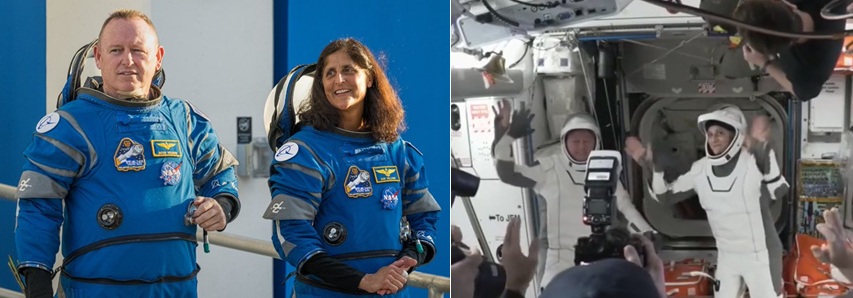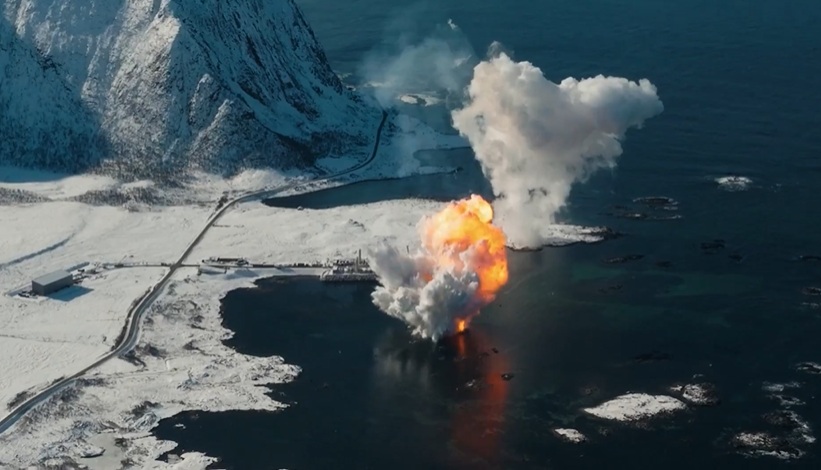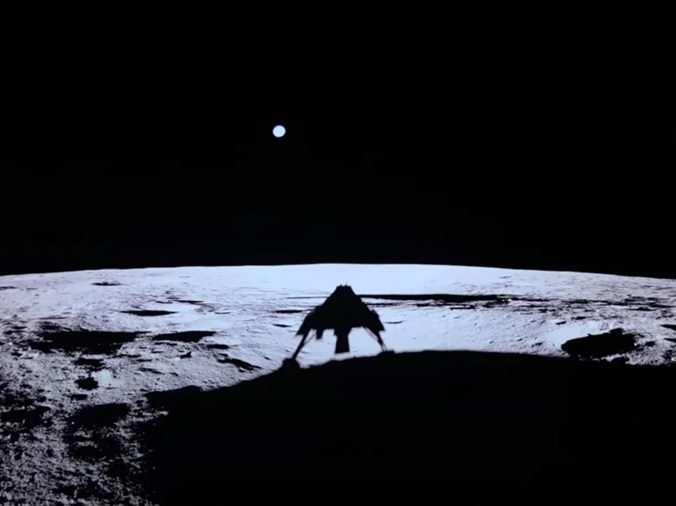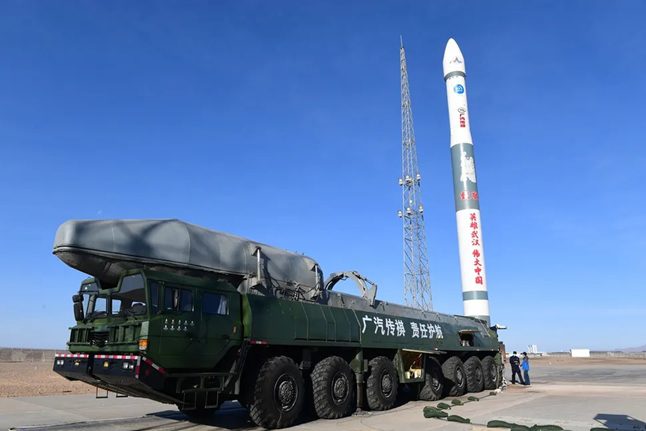While the International Space Station (ISS) had its usual comings and goings – mainly the unberthing and undocking of the Dragon CRS-17 cargo craft which returned to Earth on 3 June, and the departure and safe burn-up of the Progress MS-10 cargo craft on 4 June – its future was being decided by higher authorities.
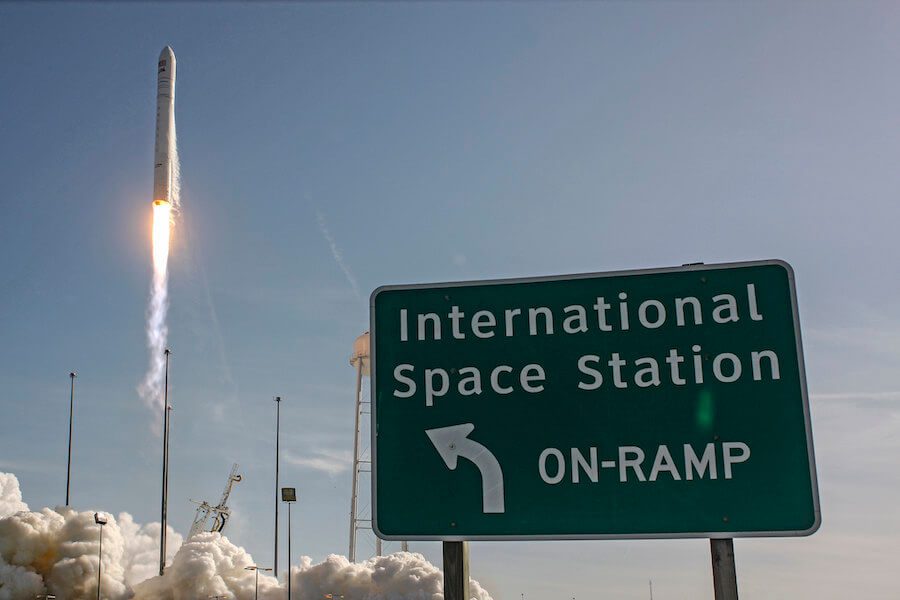
The sign points the way: Antares 230 rocket launches Cygnus NG-11 (Roger Chaffee) on its way to the International Space Station. Courtesy: Northrop Grumman
NASA has announced its intention to commercialise the ISS, turning it into a kind of Space Hotel USA of the Roald Dahl Charlie and the Great Glass Elevator story. The idea is that a tourist would pay for his or her own flight on SpaceX’s Falcon 9 launched Crew Dragon, or Boeing’s Atlas V launched CST-100 – at say US$50 million – and then pay for their stay at the NASA room rate of US$35,000 per day. Jesters have suggested that, expensive as this is, some of the very high-end suites in hotels in London or Dubai already approach this figure.
There will be a “season” with only two bookings of up to 30 days each allowed for space tourists per year.
Update on 17 June: Robert Bigelow, billionaire hotel entrepreneur and founder of Bigelow Aerospace, manufacturer of inflatable modules for the ISS, has revealed that his firm holds four bookings using the Falcon 9/Crew Dragon combination operated by SpaceX. He plans to charge space tourists US$52 million for a ride to orbit. The US space tourism firm Space Adventures intends to compete, by offering rides aboard the Atlas V/Boeing CST-100 Starliner combination.
In a separate development, President Donald Trump has put the “cat among the pigeons” in NASA’s exploration plan. Fresh from celebrating the 75th anniversary of the allied D-Day invasion victory in Normandy, President Trump, caused consternation within NASA by posting this Twitter statement: “For all of the money we are spending, NASA should NOT be talking about going to the Moon – We did that 50 years ago. They should be focused on the much bigger things we are doing, including Mars (of which the Moon is a part), Defense and Science!”
This Twitter statement, which appears to contradict the official White House promoted fast lunar exploration plan, as espoused by Vice President Mike Pence, has been interpreted by analysts as a warning that Mars remains the target for NASA’s human exploration effort and that it should not spend too much of its time and resources on planning lunar orbiting space stations and lunar surface bases.
Comment by David Todd: The Trump Twitter announcement may force NASA to favour sidelining the Lunar Gateway for a straight Apollo-style excursion mission. This would probably entail a two-launch strategy using both the SLS and the Falcon Heavy/ICPS combination, as well as an Orion spacecraft in combination with a lunar lander/ascent craft. This writer favours this strategy using a lunar rendezvous technique, even if the Lunar Gateway is probably the better solution for longer-term lunar operations.
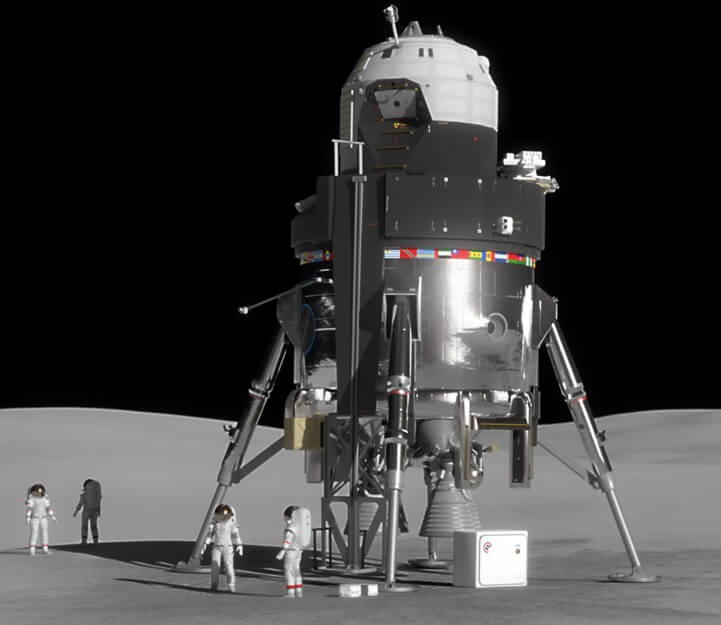
Lockheed Martin Concept for reusable lunar lander operating between Lunar Gateway and the Moon’s surface. Courtesy: Lockheed Martin
By the way, one claimed fault of the Apollo’s otherwise magnificent lunar landing achievement was that it came about fifty years too early given that NASA did not have the technology, the political will or the financial resources to make long-term habitation on the lunar surface a reality. There are flaws in this argument. As a standalone achievement, Apollo had great merit and it made a political point given that the Cold War was being waged at the time. And, in the same way, so will any successful human expedition to Mars.
However, just as the Moon was visited and then later ignored, President Trump should also realise that in the short-to-medium term, it will not be Martian colonies that spring up (whatever Elon Musk says). Rather, lunar bases and villages, as espoused by ESA Director General Jan Woerner, will be established and thrive.
While it is understandable to keep Mars as the exploration target – Mars can and should be visited by humankind – the Moon is where the real money lies. And so, in parallel with NASA’s efforts to commercialise the ISS into a kind of space hotel, soon there will also be hotels to visit on the Moon as well as lunar power stations, mines and observatories.
In other words, the plan should be: Visit Mars…but build on the Moon.

